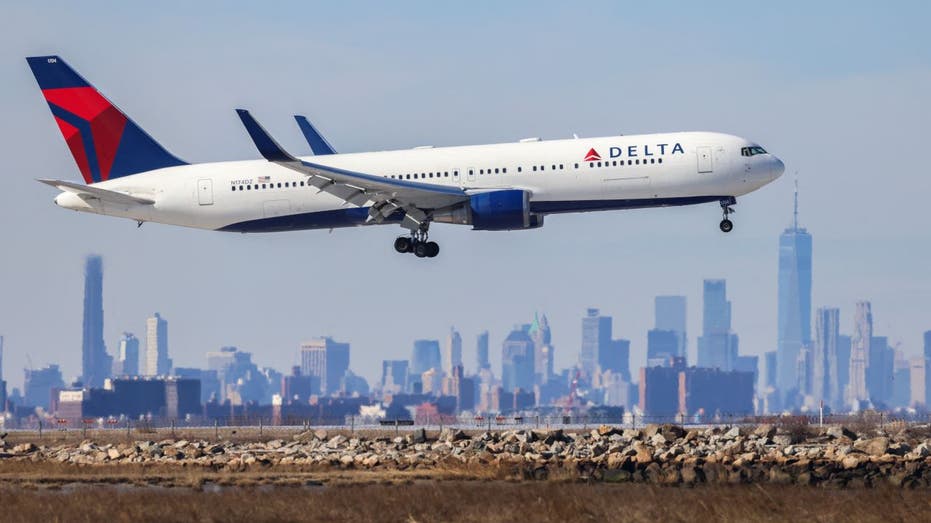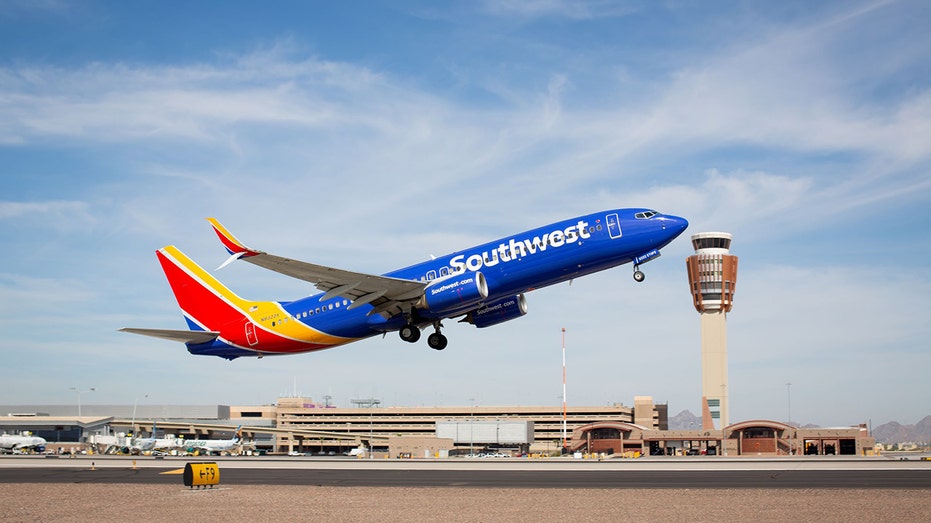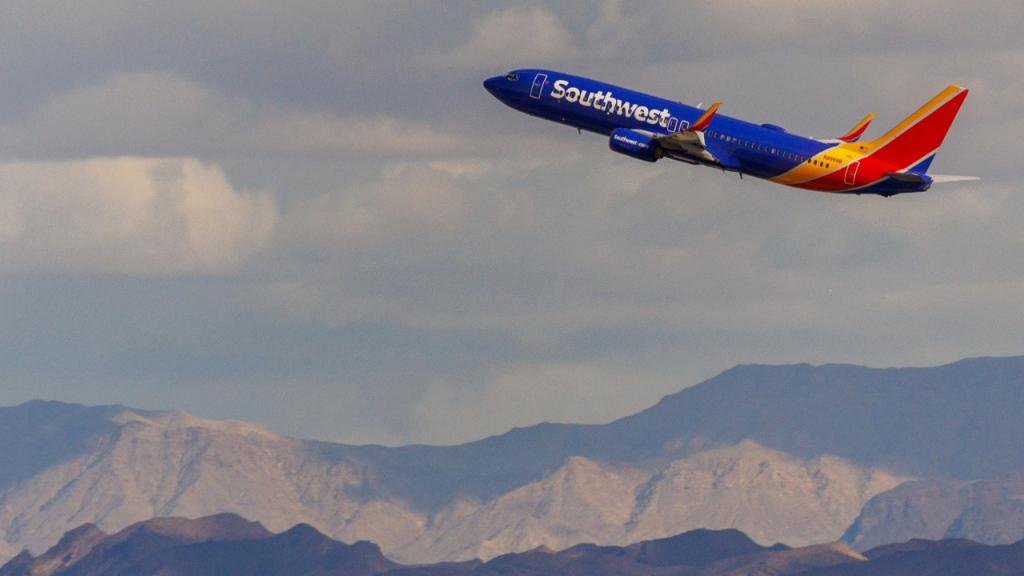On Wednesday, Southwest Airlines joined the ranks of U.S. carriers that have retracted their financial outlooks due to the uncertainties created by President Donald Trump’s ongoing trade war. This situation has emerged as the most significant challenge for the airline industry since the disruption caused by the COVID-19 pandemic.
With growing concerns about consumer behavior amid a potentially declining economy, airlines are finding it increasingly difficult to accurately forecast future business performance.
Travel is often viewed as a discretionary expense for many individuals and businesses. The trade conflict has intensified fears of slower economic growth and rising inflation, causing both leisure travelers and corporations to hold back on spending, thus leading to a decrease in travel expenditures.

Southwest announced it can no longer uphold its prior earnings forecast of $1.7 billion in earnings before interest and taxes for 2025 and approximately $3.8 billion for 2026.
“Given the current economic uncertainty, predicting future performance remains challenging, particularly due to transient booking trends,” the airline stated.
Following this announcement, shares in Southwest fell by 3% in after-hours trading.
WALMART, DELTA AIR LINES WARN OF SALES VOLATILITY, SLOWER GROWTH
Alaska Air Group also decided to retract its profit projections for 2025 on Wednesday, citing ongoing macroeconomic uncertainties.
Earlier this month, Delta Air Lines and Frontier Airlines made similar decisions, while United Airlines presented two divergent forecasts last week, a rare occurrence indicating the unpredictability of the economic landscape this year.
| Ticker | Security | Last | Change | Change % |
|---|---|---|---|---|
| LUV | SOUTHWEST AIRLINES CO. | 25.40 | -0.12 | -0.47% |
| ALK | ALASKA AIR GROUP INC. | 41.48 | -4.76 | -10.30% |
| DAL | DELTA AIR LINES INC. | 41.37 | -0.03 | -0.07% |
| ULCC | FRONTIER GROUP HOLDINGS | 3.15 | -0.07 | -2.02% |
| UAL | UNITED AIRLINES HOLDINGS INC. | 68.02 | -0.01 | -0.01% |

This shift marks a significant downturn for U.S. airlines, which had recently anticipated a prosperous future fueled by robust travel demand and limited capacity, suggesting a potential for a long-lasting profit expansion.
Airlines like Southwest are at a greater disadvantage as they rely heavily on budget-conscious leisure travelers and mainly operate within the domestic market.
The domestic market currently faces significant challenges, marked by airlines needing to stimulate demand through reduced fares. Additionally, consumer spending is particularly weak among lower-income demographics.
SOUTHWEST AIRLINES RISKS LOSING CUSTOMERS OVER NEW BAG POLICY, EXPERT SAYS
Throughout the March quarter, Southwest noticed a decline in bookings for domestic leisure travel, a segment where the airline holds more market exposure compared to competitors such as Delta and United.
| Ticker | Security | Last | Change | Change % |
|---|---|---|---|---|
| DAL | DELTA AIR LINES INC. | 41.37 | -0.03 | -0.07% |
| UAL | UNITED AIRLINES HOLDINGS INC. | 68.02 | -0.01 | -0.01% |
There are indications that the situation remains bleak, as the airline has predicted a decline of up to 4% in unit revenue, which reflects pricing power, compared to the previous year in the ongoing quarter.
Falling travel demand has only added to the difficulties faced by Southwest, which has been working to stabilize its operations after the disruptions caused by the pandemic. The airline’s underwhelming earnings have intensified the pressure to reconsider its business framework.

Recently, Southwest announced a shift away from its traditional open seating policy, a hallmark of its brand for over five decades. Additionally, in March, the airline disclosed plans to implement fees for checked luggage, ending its long-standing policy of complimentary baggage.
Despite these changes, Southwest maintains that it has not yet observed any significant customer attrition. CEO Bob Jordan indicated that the airline is preparing to roll out basic economy options and bag fees next month, as well as to launch the sale of assigned and extra legroom seating in the forthcoming September quarter.
GET Finance Newso BUSINESS ON THE GO BY CLICKING HERE
To safeguard its profit margins in the face of declining demand, the airline is proactively cutting capacity, reducing available seats on flights for the latter half of the year.
In its first quarter, Southwest posted an adjusted loss of 13 cents per share, which is less than the anticipated loss of 18 cents per share predicted by analysts, according to LSEG data.
The airline plans to provide a detailed discussion of its financial performance during a call with analysts and investors scheduled for Thursday.


























